
Horse Diet, Transportation, and Exercise Performance
A forage-only diet and transported before exercise could positively impact horses’ exercise performance, researchers found.


A forage-only diet and transported before exercise could positively impact horses’ exercise performance, researchers found.

Learn how to plan forage purchases with this practical guide to hay cuttings, types, and quality.

Proper spring turnout management and monitoring body condition are important steps to keeping your horse healthy.

Consider your horse’s diet when helping him make a smooth transition from winter to spring.

Rapidly adding concentrates to horses’ diets resulted in immediate and short-term effects on the cecal microbiome, pH, and volatile fatty acid production, reducing the cecum’s microbial diversity.
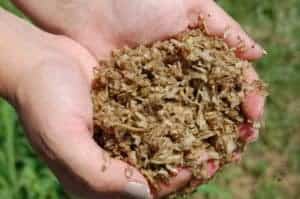
Need to stretch your hay supply? Consider adding hay cubes, complete feeds, or forage byproducts.

Learn more about nutrition’s role in the development and management of equine endocrine disorders and how you can reduce your horse’s risk of developing a secondary disease.

A “GIP” antagonist could provide an alternative way to combat metabolic disease in equids, researchers found.
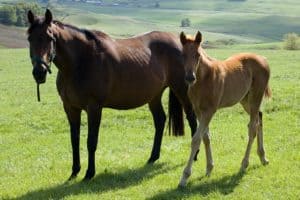
Foals with a selenium deficiency are at risk of developing white muscle disease, which leads to skeletal and cardiac muscle abnormalities.

Owners considered veterinarians the most reliable information source, which researchers found encouraging.
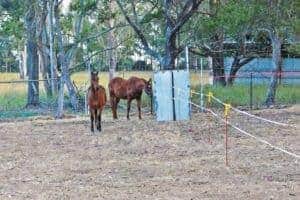
Researchers found that some ponies are willing to exercise themselves … as long as there’s food involved.

Alfalfa products with smaller particle sizes appear to be more effective in helping limit gastric lesion formation.

I have a healthy 21-year-old retired gelding who will not eat any type of hay in his stall at night. I have concerns about him standing in his stall all night without chewing and developing ulcers as a result. What are my options?

EMS horses had less microbial diversity than healthy horses, potentially impairing gut health and affecting metabolism.
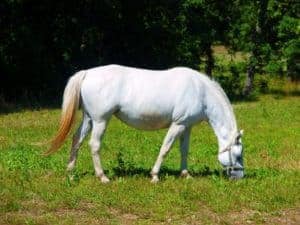
Researchers found that obesity appears to negatively impact mares’ follicles and oocytes and, thus, their fertility.
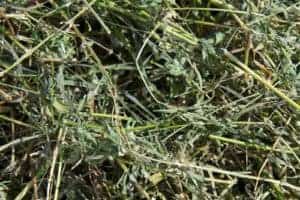
You’re faced with the choice of offering your horse alfalfa pellets or hay. Which should you choose?
Stay on top of the most recent Horse Health news with